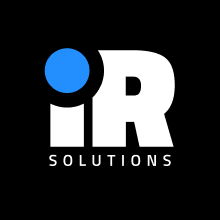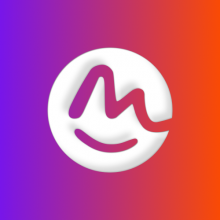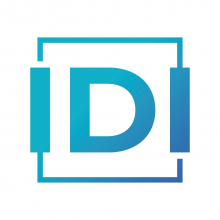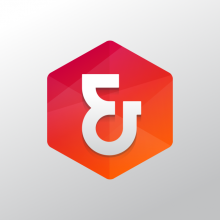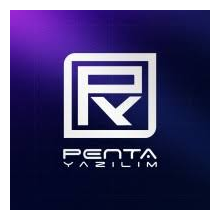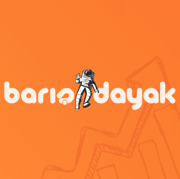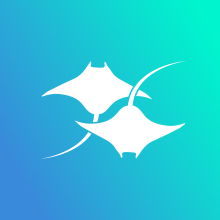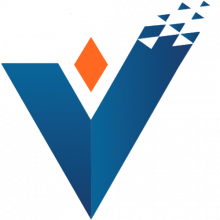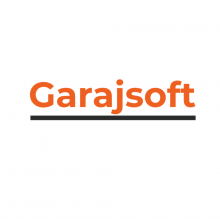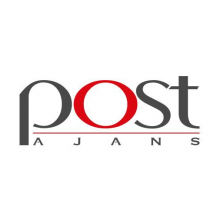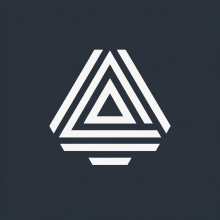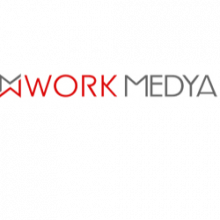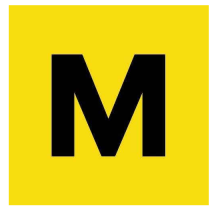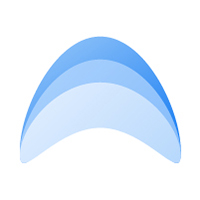
There are 23 Companies in Turkey
that provide Laravel Development Services!
While states, large companies, and universities discuss terms like the Fourth Industrial Revolution, 5G, the Internet of Things, artificial intelligence, and cybersecurity, consumers concern themselves with applications for their mobile devices, cloud technology, or developments in digital gaming. However, the origin of all of these is the sector of information technology (IT).
Discover Top IT Companies in Turkey specialized in Laravel and other related services. Find the best IT service providers for your projects.
Laravel is a popular open-source PHP web application framework used for building web applications and websites. It's known for its elegant and expressive syntax, as well as its rich set of tools and libraries that simplify common web development tasks. Laravel was created by Taylor Otwell and released in 2011, and it has since gained widespread adoption in the PHP development community
Handpicked companies • No obligation to hire • 100% risk-free
Featured Companies in Turkey
This month, the following Laravel Development companies managed to provide an outstanding service and support. It's worth taking a look.
Mobirevo is a Leading custom software development agency focused on web, mobile app development & saas application development.
Suncode co is an IT solutions and consultancy company based in Erbil, providing high quality web development, designing and IT services.
Explore Top Laravel Development Companies in Turkey
Digital Marketing and Technology Firm
We're a software and digital product design and development agency that combines the limitless creativity of art with the functionality of engineering
Services:
“Penta Software blends design, software, and SEO with innovation and simplicity to deliver trustworthy and unique digital solutions.”
Services:
Web Design and SEO Specialist
Services:
Greyline Software Consulting delivers end-to-end web & mobile solutions, IT consulting, and custom software development.
Vorante transforms your idea into a global brand with innovative strategies including software, branding and marketing.
Services:
We are a team of developers, and product designers who are ultimate solution finders!
Services:
Advertising agency in Turkey with a history of up to 30 years. The highest quality advertising agency in Konya
Services:
Solvionica builds secure, scalable software solutions in crypto, fintech, and banking — from architecture to launch.
Work Medya is an Istanbul-based SEO agency that has been providing services since 1989.
Services:
Mediaclick is one of the leading digital agencies in Turkiye, each of which is formed by a team of the best in their profession.
Services:
Pella Global Marketing Agency offering PR, advertising, video production, social media, SEO and lead generation for international and local clients.
By setting the right goals and focus areas, we increase your digital experience step by step and accompany you at every stage of your digital transfor...
Services:
2014 Yılından beri aktif olarak hizmet sağladığımız firmamız ile Bursa başta olmak üzere birçok şehire hizmet sağladık.
Services:
We’re a digital product development company, transforming founders’ and product owners’ visions into beautiful intuitive digital products for users.
web design, seo, digital marketing, advertising,
Services:
Filter Laravel Development Companies in Turkey by Cities
Find the right tech company near you or from a specific city. Some of the best companies might be located in smaller cities.
Find more Laravel Development companies around the world
TechBehemoths is the world's most advanced and user-friendly platform to match IT Companies with real clients without hustle.
The IT Industry In Turkey: Companies and Country Overview
While states, large companies, and universities discuss terms like the Fourth Industrial Revolution, 5G, the Internet of Things, artificial intelligence, and cybersecurity, consumers concern themselves with applications for their mobile devices, cloud technology, or developments in digital gaming. However, the origin of all of these is the information technology (IT) and software sector. The IT sector, which keeps states, companies, and individuals functioning, is a strategic –in the fullest sense of the word–arena.
Efforts towards digitalization are increasing every day throughout the world, creating new technology and solutions almost every day and shaping the future. Turkey has also rolled up its sleeves and gotten to work in this area. The information sector has become important in state policies, in companies’ business targets, and in education. The state aims to speed up its R&D efforts in software, in educational projects, and production by implementing various kinds of promotions and incentives.
Using local capital has increased the productivity of this sector, which provides added value far above the cost of expenditure for education and investment. Meanwhile, Turkey has also begun to lead in service exports.
While players in Turkey’s information sector cooperate with all other sectors in the country to increase digital transformation and productivity, the export rate is also increasing. The Turkish information sector, which supports Turkish mobile operators, bankers, and the defense industry -all of which are world leaders- has become a regional leader. This progress is demonstrated by the statistics and rankings.
Why Work With Turkish IT Companies
In the last two decades, Turkish IT companies managed to make a name for themselves, at least in the region, and also made the country a regional tech hub. One of the main reasons for the high performance of Turkish companies is the increasing professional workforce that empowers the entire IT ecosystem. In their turn, IT companies have specialized in creating, developing, and delivering professional digital services both for internal and external markets.
Between 2015-2019, the demand for Turkish digital services grew by 300%, which tells a lot about the preferences of clients that reoriented to a cheaper and still well-developed market. The demand is still in 2025 due to the growth of the Turkish economy and the government’s investment in the development of IT infrastructure.
What to Be Aware of When Working With Turkish IT Companies
Even though most of the services provided by Turkish digital agencies are professional, there is still a 3% chance that clients will meet an agency that lacks experience or has credibility issues. This problem finds its roots in the fast-development process of the entire sector.
Another potential issue you may encounter when working with Turkish IT companies is management. Again, it’s not a regular issue a client may meet, but it’s something that needs to be paid attention to.
How Reliable Are Turkish IT Companies
Together with a fast-developing IT industry, Turkish digital agencies and IT companies also improved their reputation and became one of the region’s most favorite partners in developing web solutions for the country’s public sector, private companies, and neighboring countries' entities.
The price per quality is considered one of the most reasonable on the international market, and there are no bureaucratic issues in contracting, working with, and ending agreements with Turkish companies. As it was mentioned previously, the government-supported facilities for IT companies create a good environment for the development of the IT industry.
What is Laravel and what are its benefits for your projects?
Laravel is a popular open-source PHP web application framework used for building web applications and websites. It's known for its elegant and expressive syntax, as well as its rich set of tools and libraries that simplify common web development tasks. Laravel was created by Taylor Otwell and released in 2011, and it has since gained widespread adoption in the PHP development community. Here are the key aspects and features of Laravel:
-
Elegant Syntax
-
MVC Architecture
-
Artisan CLI
-
Database Abstraction
-
Blade Templating Engine
-
Middleware
-
Authentication and Authorization
-
Routing
-
Caching
-
Testing
-
Security
-
Community and Ecosystem.
-
Scalability
When choosing a PHP framework for a project, there are several alternatives to Laravel, each with its strengths and use cases. The choice depends on project requirements, familiarity with the framework, and specific preferences. Here are some notable PHP frameworks that often compete with Laravel:
-
Symfony: Symfony is a high-performance PHP framework known for its flexibility and modularity. It is often used for large, enterprise-level applications. Laravel actually uses several Symfony components under the hood. Symfony provides robust tools for building web applications, APIs, and microservices.
-
Zend Framework (Laminas): Zend Framework, now known as Laminas, is a mature framework that focuses on building scalable and enterprise-grade applications. It provides a collection of reusable components for various tasks, allowing developers to choose and integrate only what they need.
-
CodeIgniter: CodeIgniter is a lightweight and straightforward framework that emphasizes simplicity and speed of development. It's often chosen for smaller projects and rapid application development (RAD). While it has a smaller feature set compared to Laravel, it's known for its minimal learning curve.
-
CakePHP: CakePHP is a full-stack framework that focuses on convention over configuration (CoC). It comes with features like scaffolding, a built-in ORM, and a friendly community. It's known for its simplicity and convention-driven development.
Companies specialized in providing services using Laravel can significantly benefit relevant projects. Their expertise in Laravel development allows them to efficiently create customized web applications that meet specific project requirements. With a deep understanding of Laravel's capabilities, these companies can ensure the project benefits from Laravel's robust features, clean code structure, and security mechanisms.
They expedite development using Laravel's built-in tools and extensive package ecosystem, making them well-suited for both small-scale and enterprise-level applications. Security is a top priority, with specialists implementing best practices to protect against common web vulnerabilities, enhancing the project's safety, especially when dealing with sensitive data.
After the project launch, these specialized companies offer ongoing maintenance and support, addressing issues, applying updates, and ensuring the application's long-term reliability. They also excel in integration with third-party services and technologies, expanding the application's functionality and enhancing the user experience.
In addition, some companies may offer UX and design services, further improving the project's visual appeal and usability. Through rigorous testing and quality assurance, they identify and resolve potential issues before deployment, ensuring the application performs reliably across various devices and browsers.
